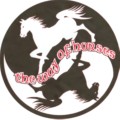
THE WAY OF HORSES |


Copyright © thewayofhorses
Eleanor
Richards |
COLOSTRUM By Eleanor Richards Copyright © 2004 "How soon after foaling does a foal need to nurse?" The sooner the better. The protective immunoglobulins in the colostrum are more concentrated in the early hours of lactation. As time goes on milk production will dilute them. Also, the foal's ability to absorb them decreases as his digestive tract matures. Peak absorption time is between 2 and 4 hours of birth. "What is colostrum?" It is the first fluid a mare secretes from her udder after foaling. It contains the antibodies which protect the foal from infection. "How can I be sure the foal received enough colostrum?" Between 12 and 36 hours of age have your veterinarian take a blood test. This sample can be checked for IgG concentrations. The test result will tell your vet if the foal has received the proper levels of antibodies. If the foal has not, a blood transfusion will be done to insure the foal is protected. "What if the mare dies, has no colostrum, or won't let the foal nurse?" If the mare dies or won't let the foal nurse, try to milk her. Let the foal suck from a bottle (use a lamb nipple). If there is no colostrum contact large breeding farms or a local dairy (bovine colostrum is better than nothing). Try the web site: Cyberfoal.com. They have a network of stored colostrum across North America and a listing of nurse mares. Have a plan in place before the foaling date. Being prepared can save a foal's life. The vet can administer blood plasma intravenously, which will provide the foal with the needed antibodies. Check with your vet to insure she keeps some in stock. "How much colostrum should the foal receive?" An average horse foal should receive 250 ml. of colostrum every hour for the first 6 hours after foaling. Colostrum can be frozen, but do not thaw colostrum in the microwave...it will kill the antibodies. |